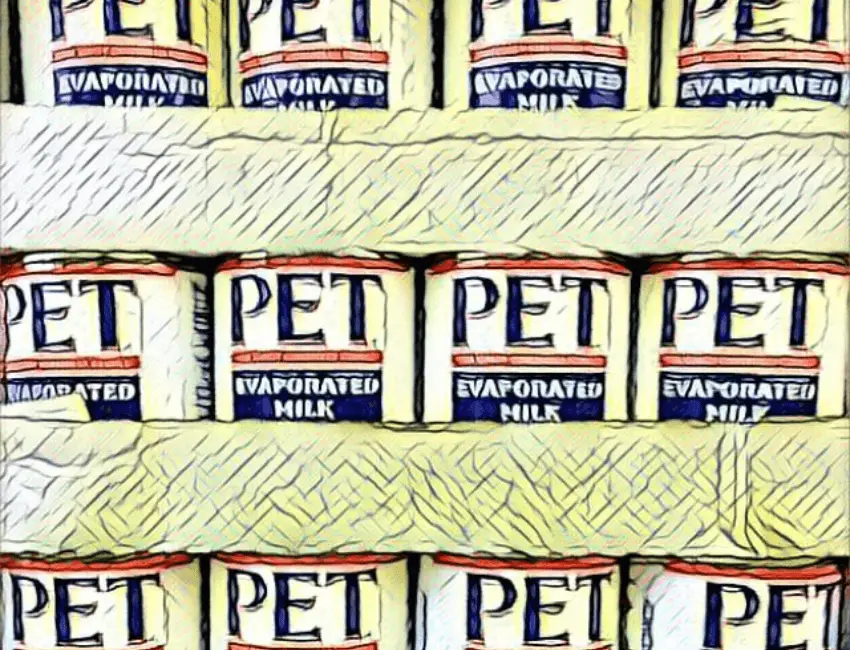Lactose is the natural sugar found in milk. People with lactose intolerance or lactose sensitivity have trouble digesting lactose in dairy products. These people are in short supply of lactase, which is naturally produced in the body. Lactase helps break down lactose to make it easier to digest. The inability to properly digest lactose can cause bloating, gas, diarrhea, loose stool, vomiting, and nausea.
If you have problems digesting lactose, you are likely curious if evaporated milk contains it. This article will explore whether evaporated milk has lactose, how it compares to regular milk, and what options are available for those who are lactose intolerant or have a milk allergy.
Is There Lactose In Evaporated Milk?
Milk is naturally made of a large portion of water. It contains about 88 percent water.
Evaporated milk is produced by heating regular milk until approximately 60 percent of its water content is evaporated. While much of its water content is removed, the lactose remains in evaporated milk.
So yes, evaporated milk does have lactose. According to the University of Virginia Health System, it has approximately 25 grams in one cup. In comparison, a cup of milk contains 12 grams of lactose.
Generally, a person with lactose intolerance can consume up to 12 grams of lactose at one time without the typical lactose intolerance symptoms. Evaporated milk has a higher level of lactose. People with lactose intolerance should avoid it or consume it sparingly depending on their tolerance.
Lactose-Free Evaporated Milk
If you are ambitious, you can make your own lactose-free evaporated milk by using Lactaid milk. Lactaid is regular milk with lactase added as an ingredient. The lactase breaks down the natural lactose to make a 100 percent lactose-free milk.
Simply add 2 to 3 cups of Lactaid whole milk to a pan and simmer it until the liquid is reduced by half. The heating process will make a lactose-free condensed milk with a light caramel flavor.
Furthermore, there are now lactose-free and dairy-free evaporated milk products available at grocery stores. Examples are Nestle Carnation Lactose-Free Evaporated Milk and Nature’s Charm Evaporated Coconut Milk.
Final Thoughts
Evaporated milk contains lactose, which is a naturally occurring sugar in milk. The concentration of lactose in evaporated milk is high compared to many other dairy products. Fortunately, there are lactose-free and non-dairy alternatives available that can be used as a substitute if you are unable to consume regular evaporated milk.
Understanding the lactose content in evaporated milk can help you make informed choices about your diet and ensure that you are consuming foods that are appropriate for your needs.
Understanding the lactose content in evaporated milk can help you make informed choices about your diet and ensure that you are consuming foods that are appropriate for your needs. Consult with a health care professional if you have concerns about lactose causing health problems.
Image Credit – Nicolas Nova/flickr

